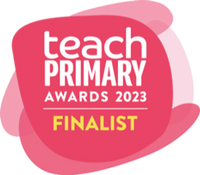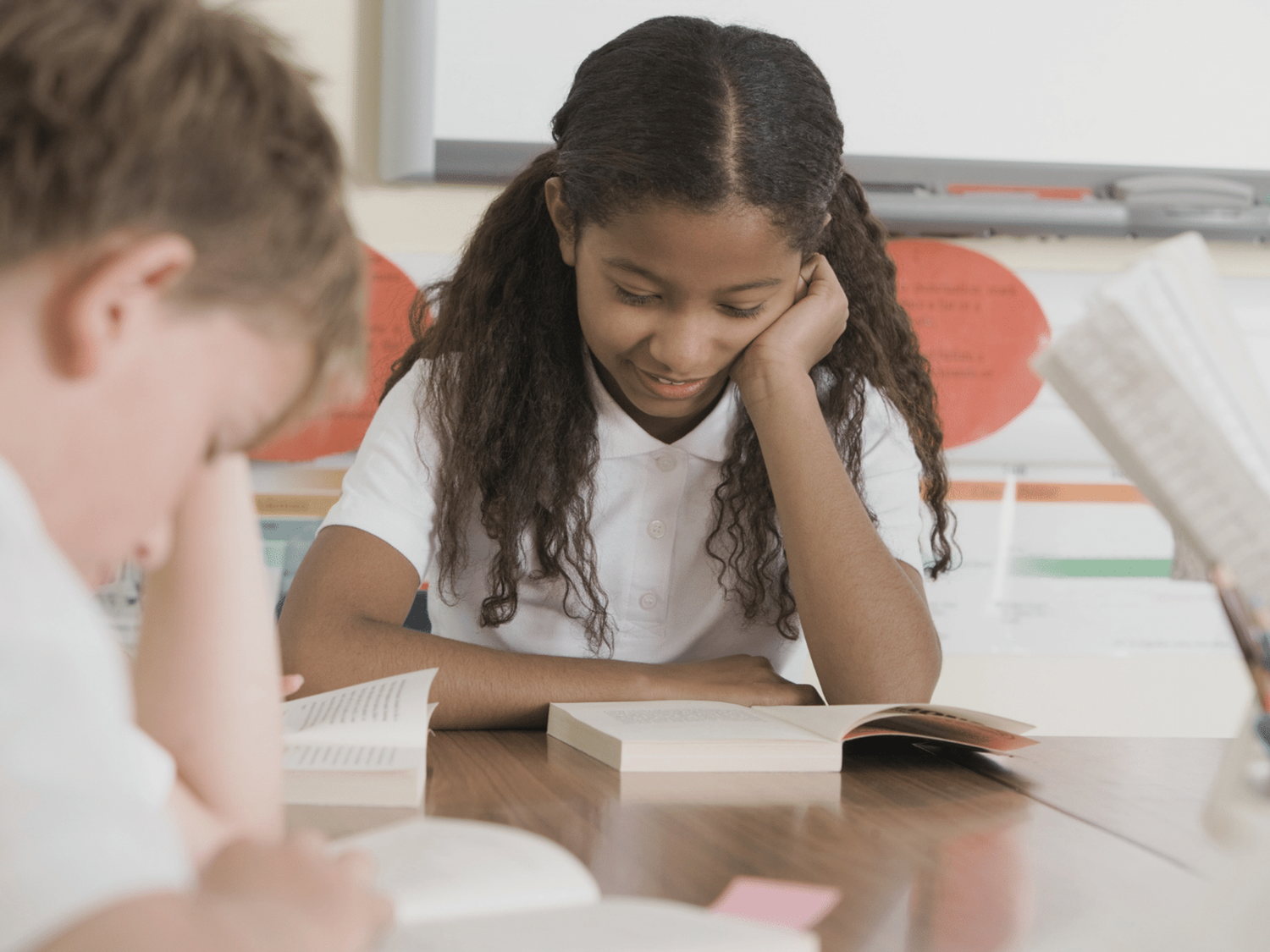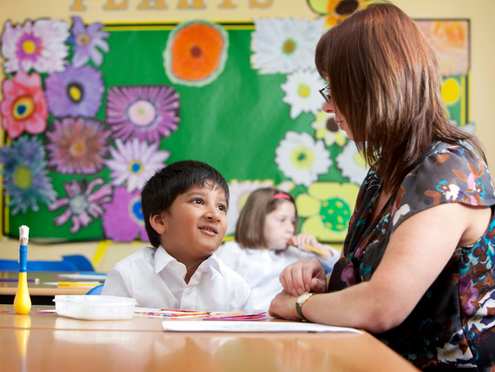Primary and secondary school experts share best practice
The EEF 2019 guidance report, Improving Literacy in Secondary Schools, recommended that schools make disciplinary literacy a key priority. To share expertise with our community, we held a webinar with four expert practitioners giving insight into:
- Successful approaches to disciplinary literacy
- Why disciplinary literacy looks different in every school
- How to ensure staff buy-in and cross-curricular impact
Alongside Bedrock Learning's Alex Randle, Head of Engagement and former English teacher and GCSE examiner, were:
- Charlotte Evans, literacy lead for secondary schools at Harris Federation.
- Dr Elisabeth Pickles, Equal Opportunities Lead at Highworth Grammar School. Following her PhD, Elisabeth contributed to the disciplinary literacy component of the EEF guidance on improving literacy in schools.
- Krisha Hendra, Assistant Principal at Swindon Academy.
- Bronnie Williams, writing lead at The Cornerstone Academy Trust, a DfE-selected English Hub.
Do you feel teachers are fully trained in disciplinary literacy when they start teaching?
Charlotte: We need to ensure literacy forms part of the recruitment and interview process for teaching staff of all disciplines. We find most new teachers have been trained in teaching pedagogy, and as subject specialists, but literacy is seen as an add-on. A lot of teachers I speak to say they don’t feel equipped to teach literacy.
Krisha: Because research about literacy and vocabulary is becoming more commonplace, sometimes the newer teachers do have an understanding of disciplinary literacy and are keen to follow this in literacy and vocabulary projects. But they often still fear literacy – we’ve put in additional training but it’s still a huge challenge.
Bronnie: It’s a terrifying fact that the vocabulary children are assessed as having in Reception is often the best indicator of their GCSE results. We take the stance that not only should every lesson be a reading lesson, it should be an opportunity to develop vocabulary too. Transition to secondary school is a big step up; a key part of our strategy is to help students to be versatile enough to adapt to any classroom – to equip them with strategies they can use when they’re not reliant on approaches we have at primary school.
What approaches have you found successful in helping students to unpick source texts?
Elizabeth: When picking apart sources – in history and more generally – we need to encourage students to approach new words with caution. This can be a challenge in an age where students have little patience!
In my PhD research I found students were quick to hone in on the parts of a source they thought they understood and to reach conclusions, whereas the highest level of thinking came when they were cautious – unpacking and considering the context of words. I think that’s fundamental to developing literacy skills in secondary school: even straightforward words are used in different ways in different subjects. We should encourage students to have strategies for testing what a word means in a particular context.
"[Teachers] are often undertrained in the literacy demands of their subject [...] Such challenges can create a ‘literacy gap’." - EEF, 2019
What does disciplinary literacy look like at your school(s) and why?
Charlotte: From a federation-wide point of view, each of our schools is on a different journey and has a unique curriculum. We’ve had to consider that most of our schools are in deprived areas, and we’ve had to teach a lot of context of nuanced words. Each individual site looks at their strategy, and each subject lead decides what the action plan should look like. We then monitor these different layers carefully, ensuring all literacy leads have the knowledge and skills to push it forward. They have all attended the National Literacy Trust’s disciplinary literacy training and developed their plans accordingly.
A lot of my role is being a sounding board for our literacy leads. Have they implemented enough key strategies in each area? Have they focused on reading first, before writing? Have they remembered the purpose is to create subject experts – i.e. being a geographer or mathematician? How do we create an academy action plan that supports students who go to six different lessons a day? It’s a journey and we’re currently looking at next year based on where we are after a year.
Elisabeth: We’re encouraged as departments to develop our own ways of working, because each subject is so different. It’s healthy to encourage colleagues to think through these issues themselves from their own subject’s point of view rather than all fit into a single framework, but we share too because we can learn a lot from each other.
Krisha: As Charlotte and Elisabeth have said, it’s our ambition to have different approaches in each subject area. We’re at a different stage on our journey – when I took on this role, I knew disciplinary literacy was a priority – reading the EEF report brought that home. I started with a focus on vocabulary as a way to develop staff expertise. We increased staff confidence with concepts such as etymology and morphology, identifying key Tier 2 and Tier 3 vocabulary for particular subjects, and identifying patterns.
We use the Alex Quigley model of collecting and exploring words, then consolidating, to move from receptive understanding to expressive understanding. We planned our CPD around that; now, leaders are developing how they’ll embed it in their respective areas.
Bronnie: As a primary school, we do a lot of project-based learning that’s not subject specific – embedding English skills in projects with wider curriculum links. We give students varied ways to apply their knowledge to ensure it’s embedded, such as using new words in practice – filming, performing or writing a letter. Incorporating new knowledge into a project gives it a purpose and motivates the students.
What anecdotes and strategies do you have for embedding disciplinary literacy across the board?
Charlotte: Quite amusingly, when we sent an email with ‘disciplinary literacy’ in the subject line, some recipients misinterpreted the term as having behavioural discipline/HR connotations! Unintentionally, it generated a fascinating discussion about the nuances of words.
We want to link into the EEF research on metacognition, giving children versatile tools to use independently in future. There’s no quick outcome – it’s a long-term approach. We emphasise caution, like Elisabeth, in the ‘during’ phase – encouraging students to pause and reflect, and consider their audience and purpose when writing.
Krisha: In terms of planning, we asked subject leads to create Frayer models for words they were going to teach explicitly and fit these into all lessons. This approach has ensured we have a common language.
Elisabeth: In terms of embedding the approach, it’s important to create a word-conscious culture where students feel confident breaking down new words. Even as a teacher, it’s important to be able to say, ‘I’m not sure what that means in that context – let’s look it up’.
Bronnie: A key part of our CPD programme was that it’s okay not to know the meaning of a word. Another core part of our approach is for staff not to dumb down vocabulary – I tell them, don’t use words you know students will understand. For example, say ‘distribute the books’, not ‘hand out the books’.
How do you ensure staff buy in?
Charlotte: I use a multi-layered approach. If literacy is a barrier in a teacher’s classroom, it won’t be because they don’t want to do it, but because they don’t know how to address it; professional learning has to be at the heart of a unity of vision.
Another point is how well disciplinary literacy is promoted around the school. Are the head and senior leaders pushing disciplinary literacy and disseminating the vision to staff? If staff are given the knowledge, they’ll deliver on it more readily. Leaders need to instil a belief in staff that literacy is their subject – there’s no environment where students don’t read or talk.
Elisabeth: It’s crucial to get across to staff how important vocabulary is to success. There is a wealth of research about vocabulary pointing to GCSE success – make sure you share these insights so staff can see this bigger picture.
Krisha: I’ve done masterclasses with subject leads. I gave them pre-reading – snippets from papers such as the Oxford Language Report – to paint a picture of why a disciplinary literacy approach is so important, especially in a high deprivation area like ours. I’d recommend the RAG audit tool that’s linked to the EEF report. The EEF audit tool is such a helpful framework for helping staff understand what exemplary practice looks like. At the start of our approach, I asked subject leaders to evaluate where they thought their department was currently.
Nearly a year later, I’m about to ask them to evaluate themselves again and base their department priorities on that.
Bronnie: We have the opposite problem as a primary, in that teachers are generally confident about the expectations of the English curriculum, but subject-specific vocab is a challenge. We emphasise to our faculty leads and subject leads that they’re the school champions of vocabulary in their subjects, and that their role is to plan opportunities for the students to use new words in context.
How do you suggest we improve oracy across the curriculum?
Krisha: We’re investigating a partnership with Voice 21, a speaking curriculum, next year.
Alex: One idea is to have a policy to only speak in full sentences.
Bronnie: We use Flipgrid, a free tool that enables you to give students a stimulus such as a picture or video, then they log on and record a short video themselves. It’s a powerful tool to give all students the opportunity to develop their oracy skills, and can be used as home learning or in class.
How do you tackle disciplinary literacy in digital settings?
Alex: This taps into code switching, which is talked about a lot in the Oxford Language Report – using language differently depending on context.
Bronnie: We noticed a big difference in the quality of handwritten work versus work on digital devices students have in class. We’d tried to raise expectations by not accepting lower standards on digital platforms than we would in handwritten work.





